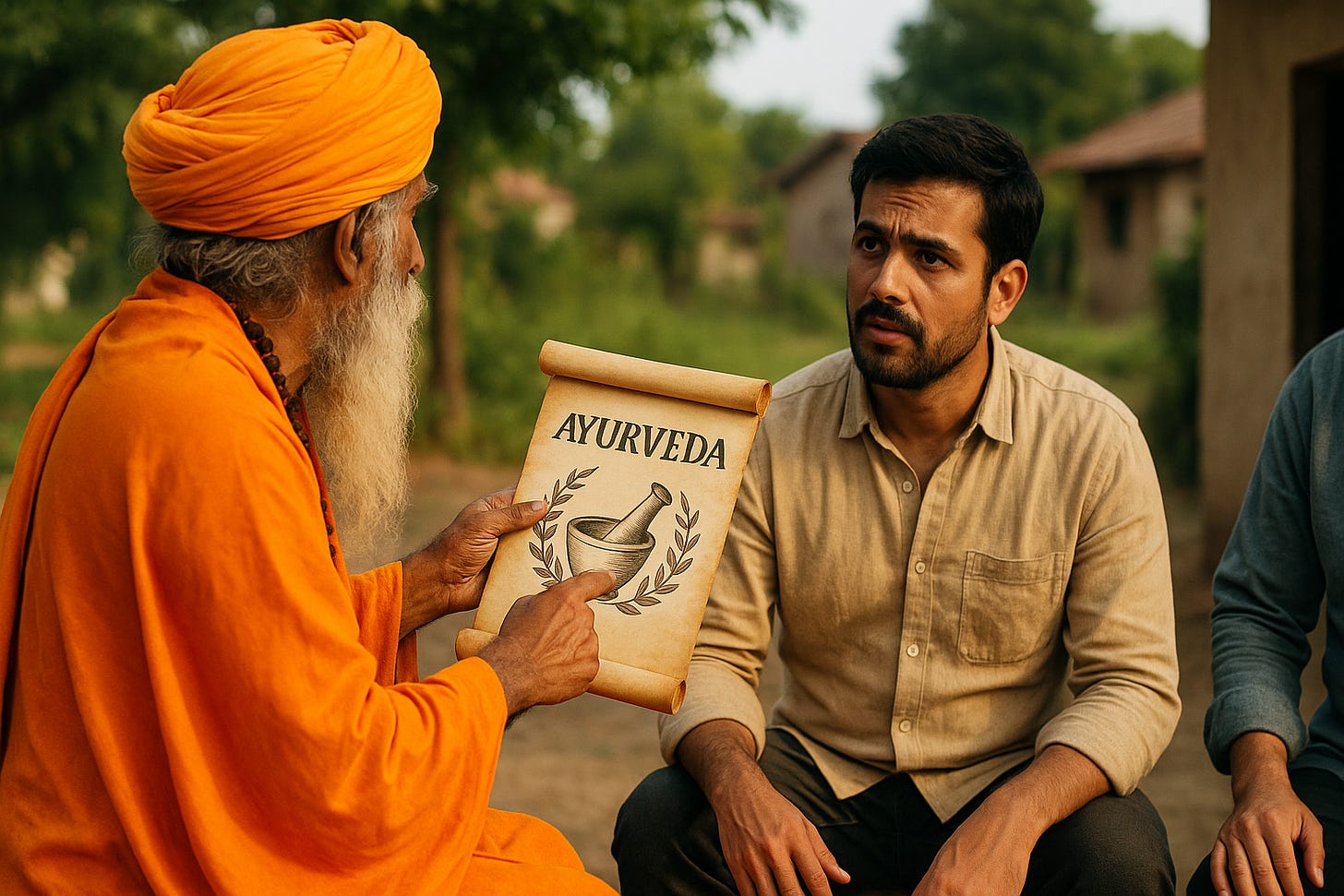Criticising Ayurveda Isn’t Anti-Hindu
Ayurveda is celebrated with great pomp as India’s traditional medicine, but behind the spiritual branding lies a billion-rupee industry.
Today is National Ayurveda Day. Hashtags, posters, ministers smiling in front of cameras. The government will tell us that Ayurveda is India’s great contribution to world health. But let’s not fool ourselves.
Ayurveda is heritage, not healthcare.
Modern medicine survives because it questions itself every single day. If a drug fails, it’s thrown out. If a treatment works, it becomes standard. That’s how science works. Ayurveda doesn’t work like that. The texts remain frozen. Doshas, panchakarma, vata, pitta, kapha, none of these stand the test of proper trials.
And the safety angle? Heavy metals like lead and mercury have been found in Ayurvedic products again and again. If the same were found in an allopathic drug, it would be banned overnight. But Ayurveda gets a free pass because it’s “traditional.”
Now look at the money. In the 2025–26 Union Budget, the Ministry of AYUSH got ₹3,992.9 crore. Almost four thousand crore rupees. A 14% increase from last year. Imagine if that were spent on district hospitals, ICUs, cancer treatment, or rare disease research. Instead, it goes into pushing pseudoscience, building Ayurveda colleges, and organizing days like this. It is nothing short of a massive waste of public funds.
And who benefits from this circus? Brands like Patanjali. The empire was built on selling “Ayurvedic” powders, tablets, and pastes fronted by a baba. Yoga on TV in the morning, herbal toothpaste in your shopping cart by evening. They’ve marketed “cures” for everything, be it diabetes, infertility, or even cancer. This is not medicine. It’s marketing. And the religious halo around it ensures that any criticism is painted as “anti-Indian” or “anti-Hindu.” In reality, it’s just another corporate business with godmen as brand ambassadors.
Meanwhile, look at how Ayurveda is treated in many developed countries. There, these products cannot be sold as medicines. They are marketed only as “dietary supplements” or “herbal health products”, with disclaimers that they are not intended to diagnose, treat, cure, or prevent any disease. That itself shows the global stance: Ayurveda may have cultural or wellness value, but it is not medicine. Only in India do we pretend it is equal to modern healthcare.
Let’s be clear: speaking against Ayurveda is not speaking against Hinduism. Hinduism is a religion. Ayurveda is a pre-scientific system of healthcare. Criticizing Ayurveda is not an attack on faith; it’s a demand for evidence. Mixing the two is a political trick to silence questions.
The real danger is the false equivalence. When the state promotes Ayurveda alongside modern medicine, people think both are equal. They are not. Cancer won’t disappear with herbal decoctions. Diabetes won’t vanish with powders. Every time a patient delays proper treatment because they were promised a “natural cure,” lives are lost.
Ayurveda has value as a cultural heritage. Keep it there. Celebrate it in museums, books, or even as wellness tourism if people want it. But stop confusing heritage with healthcare.
World Ayurveda Day is not about health. It’s about politics, money, and branding. And as usual, the ones who pay the price are patients.


